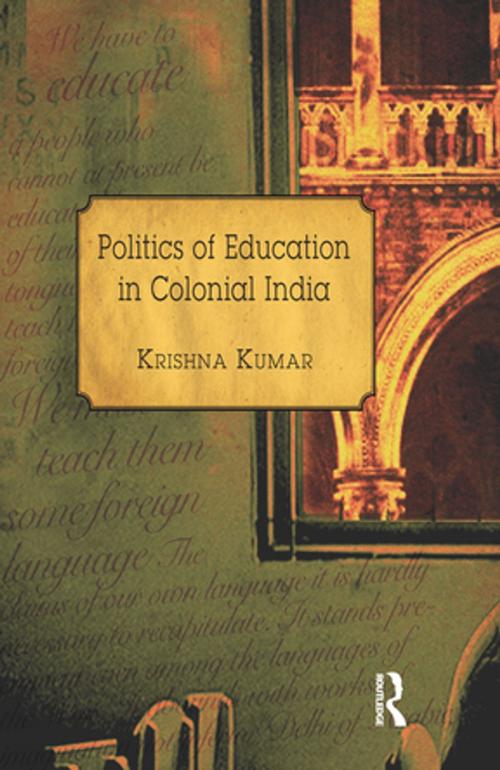Politics of Education in Colonial India
Nonfiction, Reference & Language, Education & Teaching, History, Higher Education| Author: | Krishna Kumar | ISBN: | 9781317325628 |
| Publisher: | Taylor and Francis | Publication: | August 12, 2015 |
| Imprint: | Routledge India | Language: | English |
| Author: | Krishna Kumar |
| ISBN: | 9781317325628 |
| Publisher: | Taylor and Francis |
| Publication: | August 12, 2015 |
| Imprint: | Routledge India |
| Language: | English |
In retracting from the popular view that India’s modern educational policy was shaped almost entirely by Macaulay, this incisive work reveals the complex ideological and institutional rubric of the colonial educational system. It examines its wide-ranging and lasting impact on curriculum, pedagogy, textbooks, teachers’ role and status, and indigenous forms of knowledge. Recounting the nationalist response to educational reforms, the book reinforces three major quests: justice as expressed in the demand for equal educational opportunities for the lower castes; self-identity as manifest in the urge to define India’s educational needs from within its own cultural repertoire; and the idea of progress based on industrialization.
An exceptional contribution to educational theory, including a nuanced discussion of caste, gender and girls’ education, this book will be invaluable to teachers, scholars and students of education, modern Indian history and sociology of education, and policy makers.
In retracting from the popular view that India’s modern educational policy was shaped almost entirely by Macaulay, this incisive work reveals the complex ideological and institutional rubric of the colonial educational system. It examines its wide-ranging and lasting impact on curriculum, pedagogy, textbooks, teachers’ role and status, and indigenous forms of knowledge. Recounting the nationalist response to educational reforms, the book reinforces three major quests: justice as expressed in the demand for equal educational opportunities for the lower castes; self-identity as manifest in the urge to define India’s educational needs from within its own cultural repertoire; and the idea of progress based on industrialization.
An exceptional contribution to educational theory, including a nuanced discussion of caste, gender and girls’ education, this book will be invaluable to teachers, scholars and students of education, modern Indian history and sociology of education, and policy makers.















